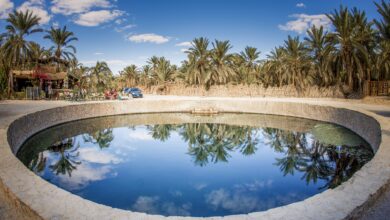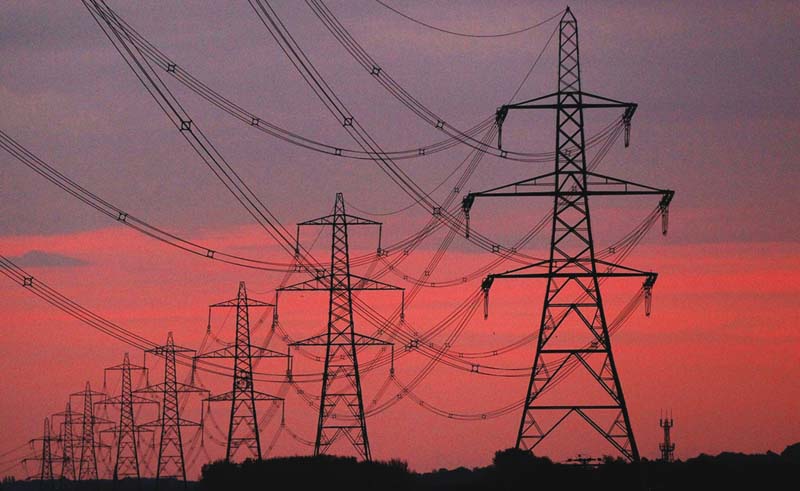With news about future power cuts mounting and rumors of three- and four-hour-long power cuts in Cairo this summer, electric generator sales are increasing by the minute. Places such as Attaba and Souq al-Sabtia are crowded with anxious buyers looking for the best deals.
Electricity expert Hefzy Zayed said in an interview with ONtv satellite channel this month that poor maintenance of power plans and the lack of liquidity to buy raw materials for the plants has caused the electricity shortage.
Zayed said electricity cuts may occur across the country for up to two hours a day, and some predict rural areas will experiences power cuts lasting four to six hours.
Unsurprisingly, many families are now purchasing generators.
An electric generator converts mechanical energy to electrical energy, forcing electric currents to flow through an external circuit. Whatever is hooked up to a generator will last for a few hours after the power is cut, but appliances turn off before the generator power turns them on again.
Before the increase in power cuts, generators were sought by hospitals, factories and hotels — places that stand to lose lives, or large amounts of money, from loss of power.
The busy Gomhurriya and Naguib al-Rihany streets in Attaba are experiencing a new wave of well-off buyers who are desperately looking for the device.
“A 1,900-watt generator will run the lighting system of a small apartment, a fridge and a small fan, and costs LE2,600,” says Mohamed Samir, a store owner on Gomhurriya Street.
Larger generators, such as 6-kilowatt devices, can run an air conditioner up to 3 horsepower.
“These could go up to LE6,000,” Samir adds.
The most affordable generators are made in China.
“Japanese generators are less available,” says a shop owner who asked to be identified only by his last name, Remond.
He owns Patmos Tool Market in Attaba, and says LandTop and Lincoln are the most common brand.
“A [6-kilowatt] Lincoln electric generator costs LE8,000,” Remond says.
For those who can afford it, a Honda electric generator is a good buy but it costs about LE25,000.
Used generators are also sold in Sabtia market.
“Prices range from LE8,000 to LE60,000, depending on the machine’s capacity and whether it is automatic or manual,” says Sherif al-Khouly, who recently bought an electric generator for his house on the outskirts of Cairo.
The young father felt compelled to buy the expensive device in anticipation of emergencies during expected power cuts.
“The device has many disadvantages, among which are its high price, its loud noise, its big size and its fuel or diesel consumption,” says Khouly, who needs to store large quantities of fuel from now on to power the generator.
Ezzat Amin, a husband and father, says he has been looking for a generator since the Freedom and Justice Party’s Renaissance Project failed and after days soaking in his own sweat, wearing nothing but his undershirt.
“Generators are ‘in,’” Amin says, laughing.
“Importing electric generators is now a profitable business,” he explains, saying he knows a group of friends importing a shipment of 30 generators from China — 10 for personal use and the rest for sale.
He compares the high demand for diesel and electric generators to a state of turmoil or war.
“Egyptians are in a state of bewilderment,” the artist and scriptwriter, who wrote the book “Party of the Couch,” says. “Nowadays, you either find an affordable generator that runs on diesel, which is becoming a rare commodity, or a device that runs on fuel but is extremely expensive.”
Amin thinks the solution for the country’s energy problems is to increase diesel prices, eliminate the black market and end smuggling.
“The country is collapsing, and both electricity and diesel are commodities that are largely stolen and smuggled,” he says.
Mai Khaled, a housewife, says she thinks a little planning will pull her family through the summer.
“We have yet to purchase a generator,” she says, explaining that her building has emergency lights and they can cope with heat by taking showers — the only fear is losing refrigerated and frozen food. “I want to buy surge protectors for my fridge so it doesn’t burn out, but a generator is excessive.”
Of course, the vast majority of the population cannot afford generators. Emergency lights, flashlights and gas lamps may be a more affordable rescue plan during power cuts, and the realization of this demand has led to an increase in lamp and candle prices in poor and rural areas around the country.
As summer approaches and the temperature steadily increases, the need to solve the electricity problem becomes more presing. Whether it’s an automatic Honda generator or a gas lamp, Egyptian households are hoping to arm themselves with the necessary equipment.




